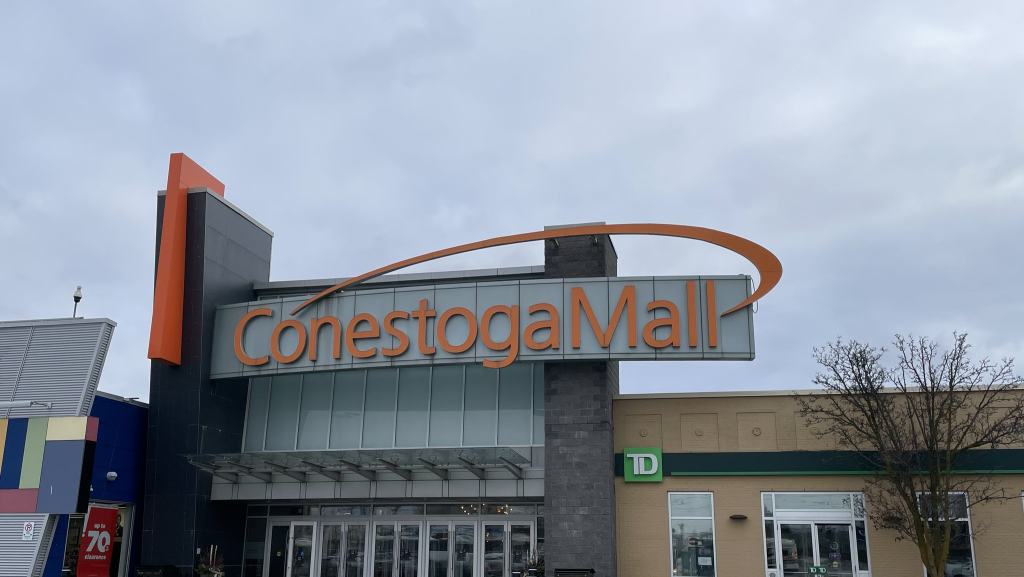Waterloo’s Button Factory Arts launches free art therapy program for nurses
Posted Jan 14, 2022 05:30:00 PM.
With hospital staff so overworked during the pandemic, nurses are facing increased isolation, and don’t have the time or space to emotionally process what they’re dealing with, according to Catherine Mellinger, an art therapist with Button Factory Arts in Waterloo.
“But I think putting that responsibility on the medical system is just too much to ask for,” she said. “And so it's important for other organizations within the community to say, ‘how can we step in?’”
That is why they launched a free art therapy program specifically for nurses at the beginning of January.
The nine-week program consists of 90 minute sessions once a week — all of which are free, virtual, and accommodating to the demanding schedules nurses have.
“Because of the reality of their schedules — there can be really last minute changes and shifts — we were really consciously creating a space that's more of a drop in,” said Mellinger, who leads the program.
There is no curriculum per se, though she usually starts with a check in of how people are doing, and guides them accordingly.
Everyone is given an art kit to use at home, and are welcome to use any additional supplies they might have. Then they move into an activity focused on mindfulness. For instance, what colour comes to mind for each person.
“Then the activity might even start from saying, okay, find anything in your kit that's that colour. So it's really based on what people are bringing to the session, but we spend a good 45 minutes just creating,” she said.
Mellinger is trained in intermodal expressive arts therapy, which includes visual elements like watercolour or clay or collage, as well as the use of words, “imaginative mindfulness,” movement and sound play. This method, she says, allows for a more fulfilling experience.
“I often call it play therapy for adults. It’s really about being playful, being curious, imaginative, and following the instinct that’s happening in the moment.”
According to Mellinger, the benefits of this kind of art therapy include increased capacity for imagination and tuning into one’s inner child. For instance, when kids play, they don’t typically confine themselves to one kind of activity, such as drawing.
“When they’re fully engaged in play, they’re really pulling from everything to be able to focus on the narrative that’s happening. So it opens up this capacity to imagine on a broad scale, and to see connections between what you’re working on and thinking about in that moment, to the real world.”
But it’s also about making space for vulnerability and connecting with others.
“It's a really vulnerable thing to be playful around other people when you become an adult … expressive arts therapy just allows people to be a little bit vulnerable in a safe space.”
Other benefits include positive effects on the central nervous system, such as regulating the nervous system response.
“Because you're engaging in a fine [or gross] motor experience, you're really allowing people to step out of their every day and into something else, which definitely reduces the stress response,” she said.
Beyond that, she says it’s also beneficial just being in a group with people who understand each other, “especially in these times when there is just so much restriction around the way we can connect with other people.
“You put eight nurses in a room, and there’s just so much familiarity there, even if they’ve never met before. If you meet another nurse, you just say, ‘yeah, I get it. I know exactly what it's like to be a nurse right now because I'm in it too.’ And there can be this really incredible healing aspect to camaraderie.”
It allows for a sense of community and friendship to flourish in a safe space, which can also bring “validation, a sense of togetherness and respite from the everyday experience.”
They’ve had one class so far, and are easing into it by just establishing a safe space where people can get to know each other, after which she says her goal is to invite more vulnerability and play with each session.
Because registration filled so quickly, Mellinger says she knows there is a need for a service like this in the community. With the capacity for just 10 registrants at a time, she hopes they will be able to continue the program to reach more people after the nine weeks are up, though it depends on funding.
Currently, Button Factory Arts is able to provide this program as part of their Art Through the Generations, Intergenerational Project which was made possible thanks to funding from The Government of Canada New Horizons for Seniors.
“If we can secure further funding to continue this program, we would absolutely love to, because the response has been really positive. And it’s made it really clear that this is very needed in the community.”








